Visiting Utah National Parks in January
If you’re wondering the best month to visit Utah National Parks, don’t count out January! It’s a wonderful time for photography, snowshoeing, and scenic drives!
Yes, it will be cold and snowy visiting Utah National Parks in January, but you can’t beat the tranquil and serene atmosphere this time of year! The guide will detail the services available, weather, what to pack, where to stay and things to do in January at all 5 parks!
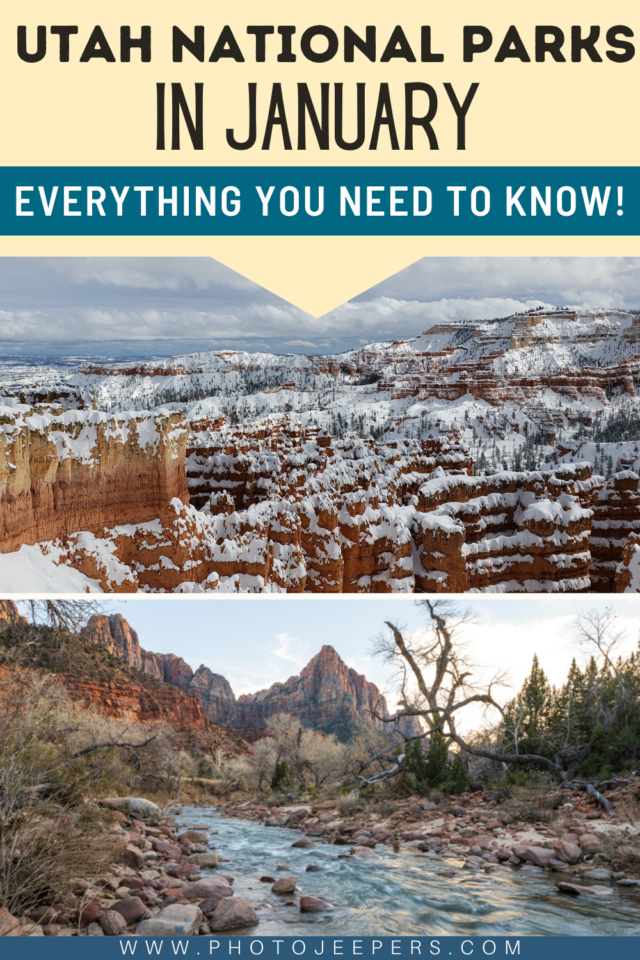
The best thing about winter at Utah National Parks is the solitude and serenity you’ll experience. There will be more visitors around New Year’s and the MLK weekend, but it’s still nothing like peak visitation times!
We live hours away from all the parks, and have visited them during all four seasons. January is a fun time to visit the Utah National Parks because it’s the offseason so there are fewer crowds! The tips we share are based on our experiences visiting the parks in January.
Tip number is it be prepared for the weather when you visit. January is a cold and snowy time of year. Use our packing list for Utah National Parks to make sure you have the right clothing and gear for visiting in January! Grab your free printable packing checklist by clicking the image below!
This site contains affiliate links which means WE may receive commissions for purchases made through these links. We only provide links to products we actually use and/or wholeheartedly recommend! As an Amazon Associate, we earn from qualifying purchases. Read the full Disclosure Policy.
A Photo Tour of Utah National Parks
Take a visual tour through all five Utah National Parks to see the stunning landscapes you’ll see when you visit!
What to Wear at Utah National Parks in January
The National Parks in Utah are located in the southern part of the state in a high desert climate. It’s important to stay hydrated, eat salty snacks, and use sun protection all year. If you’re not used to a dry environment, you may also need to use lotion and lip balm!
Pack and wear warm winter clothing and dress in layers so you’ll actually want to get out of the car to see the sights and enjoy the hikes!
- Wicking clothing
- Fleece jacket
- Rain jacket
- Winter hat
- Winter gloves
- Insulated jacket
- Darn Tough hiking socks
- Waterproof hiking shoes
Utah National Parks in January
We always recommend visiting National Parks in January when it’s the off-season for many destinations.
All of the Utah National Parks are open every single day. With that being said, not all the visitor centers and amenities are open throughout the whole park during the winter.
Some of the Utah National Parks in the winter require you to be a little more self-reliant. You will want to check each individual park for closures and services before visiting.
Weather plays a big part when determining the best time to visit Utah National Parks. Be sure you know the expected weather and temperatures for the parks you’ll visit in January:
- Arches National Park weather
- Bryce Canyon National Park weather
- Canyonlands National Park weather
- Capitol Reef National Park weather
- Zion National Park weather
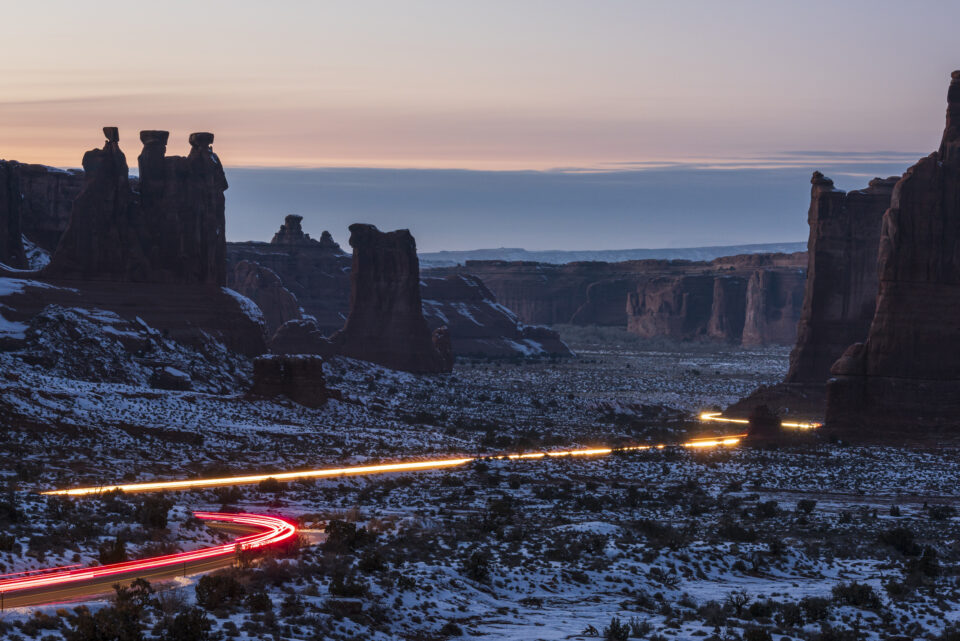
Arches in January
Winter is a great time to visit Arches National Park. The average highs are near 40 degrees with the lows near 20 degrees. Remember that Arches National Park is located at 5,653 feet above sea level so it does get cold in the winter, even if the sun is out.
Our favorite thing about Arches National Park in January is that the crowds are pretty much gone. We then get to really enjoy the park at our own pace. Often we have the parking lot to ourselves!
Many of the Arches National Park hiking trails remain open throughout January giving you lots of options to see explore the park. You might need traction devices for snow-covered or icy trails.
Be sure to stay in the park past sunset at least one night and take advantage of the incredible stargazing as well. If it snows, you’ll be able to capture amazing winter photos!
Arches National Park January Activities
- Arches National Park Winter Activities
- Arches National Park Scenic Drive
- Arches National Park Winter Hikes
- Arches National Park Winter Photos
- Arches National Park Tours
Places to Stay at Arches in January
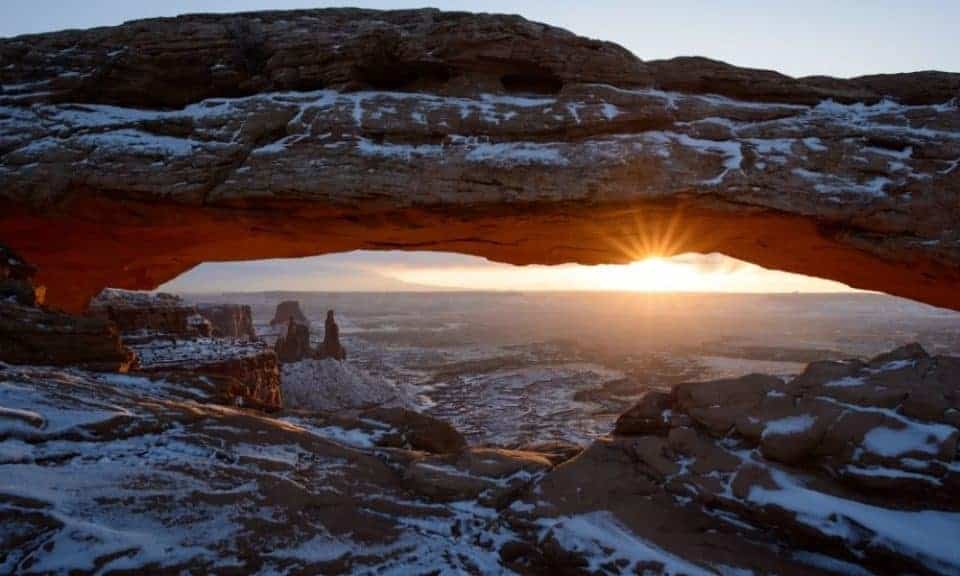
Canyonlands in January
Visiting Canyonlands National Park in January requires a little more work on your behalf. This is because several of the amenities are closed throughout the park during the week.
The average highs are near 40 degrees with the lows near 20 degrees. Remember that Island in the Sky is located at 6,100 feet above sea level, and Canyonlands Needles is 5,920 so it does get cold in the winter, even if the sun is out.
After a snow storm, the park road might be closed for plowing for a few hours. Keep in mind that the roads, parking lots, and pullouts in the park can still be icy, especially in shaded areas.
There are so many Canyonlands hikes, off-road trails, and views to photograph at both regions: Island in the Sky and Needles.
Canyonlands Activities in January
- Canyonlands Winter Activities
- Canyonlands National Park Winter Hikes
- Island in the Sky Scenic Drive
- Photo Spots at Canyonlands
- Canyonlands National Park Tours
Places to Stay Near Canyonlands in January
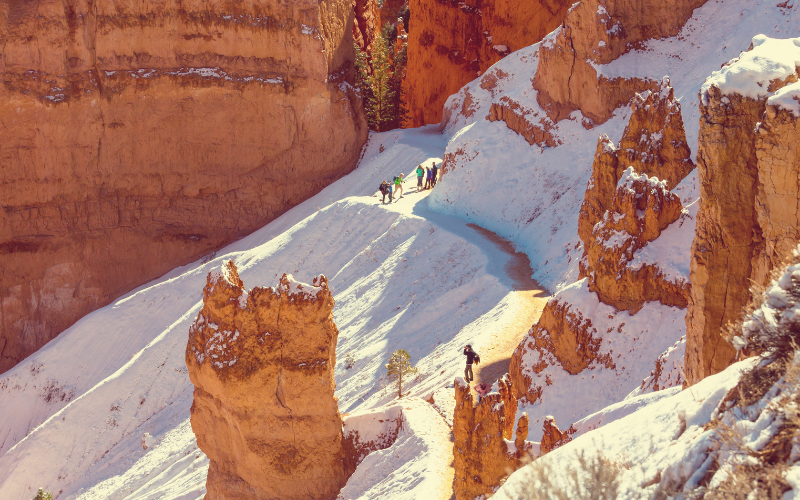
Bryce Canyon in January
Bryce Canyon National Park in January is the coldest park of all 5 in Utah due to its elevation. January usually brings the coolest temperatures of the year averaging between 36 degrees Fahrenheit and 11 degrees Fahrenheit.
In January you’ll need snowshoes or traction devices to explore most of the day hikes at Bryce Canyon National Park. You’ll also find Ranger Programs like the Hoodoo Geology Talk and Snowshoe Hikes in January. The park does provide snowshoes at the visitor center if you don’t bring your own.
Some of the Bryce Canyon must see viewpoints past the Amphitheater could be closed any time during the winter for snow removal.
Bryce Canyon sunrise photography is spectacular! It’s worth getting up early to see the glow on the hoodoos at sunrise. Rechargeable hand warmers and photographer gloves are so nice when it’s COLD outside!
Bryce Canyon Activities in January
- Bryce Canyon Winter Activities
- Bryce Canyon Winter Hikes
- Bryce Canyon Scenic Drive
- Bryce Canyon Winter Photos
- Bryce Canyon National Park Tours
Places to Stay Near Bryce Canyon in January

Capital Reef in January
Capitol Reef National Park in January means temperatures with highs around 39 and lows around 18 degrees Fahrenheit. The weather during January will be cold, and you may encounter snow.
Capitol Reef hikes are a big attraction at this park. Our favorites are Hickman Bridge and Cassidy Arch. In the winter we recommend exploring the Capitol Reef scenic drive as well!
Capitol Reef National Park photography is spectacular so of course you want to take pictures! Here’s a list of our favorite photo spots:
- Capitol Reef Sunrise Photo Spots: Panorama Point and Sunset Point.
- Capitol Reef Sunset Photo Spots: Panorama Point, Sunset Point and along the scenic drive to capture the reflected light on the canyon walls.
Capitol Reef National Park January Activities
- Capitol Reef National Park Winter Activities
- Capitol Reef National Park Winter Hikes
- Capitol Reef Scenic Drive
- Capitol Reef National Park Tours
Places to Stay Near Capitol Reef in January
- Capitol Reef National Park Lodging
- Capitol Reef National Park Winter Camping
- Hotels near Capitol Reef National Park
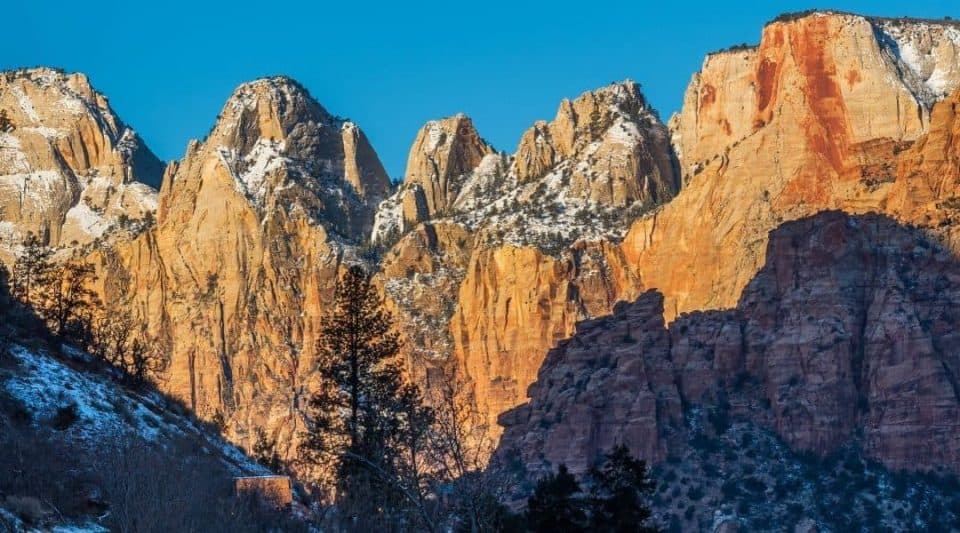
Zion National Park in January
We love our trips to Zion National Park in January, especially if it snows! The highs are usually around 50 degrees and the lows hover around 25 degrees Fahrenheit. Typically you will not see a lot snow at Zion in the lower elevations, but be prepared any storms that may roll through.
All four Zion National Park scenic drives are open to cars during the month of January. The two exceptions are New Year’s Day and MLK weekend – the Zion National Park shuttle will be running during those times. The Zion Canyon road is a 6.5-mile drive that you can take to see breathtaking views and rock formations at your own pace.
You’ll need an Angel’s Landing permit if you plan to hike past Scouts Lookout through the chains section.
Zion National Park January Activities
- Zion National Park Winter Activities
- Winter Hiking in Zion National Park
- Zion National Park Winter Photos
- Zion National Park Scenic Drives
- Zion National Park Tours
Places to Stay Near Zion in January

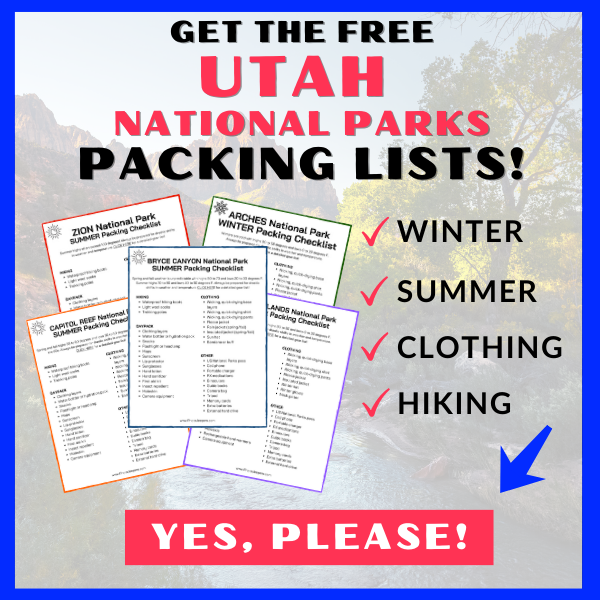
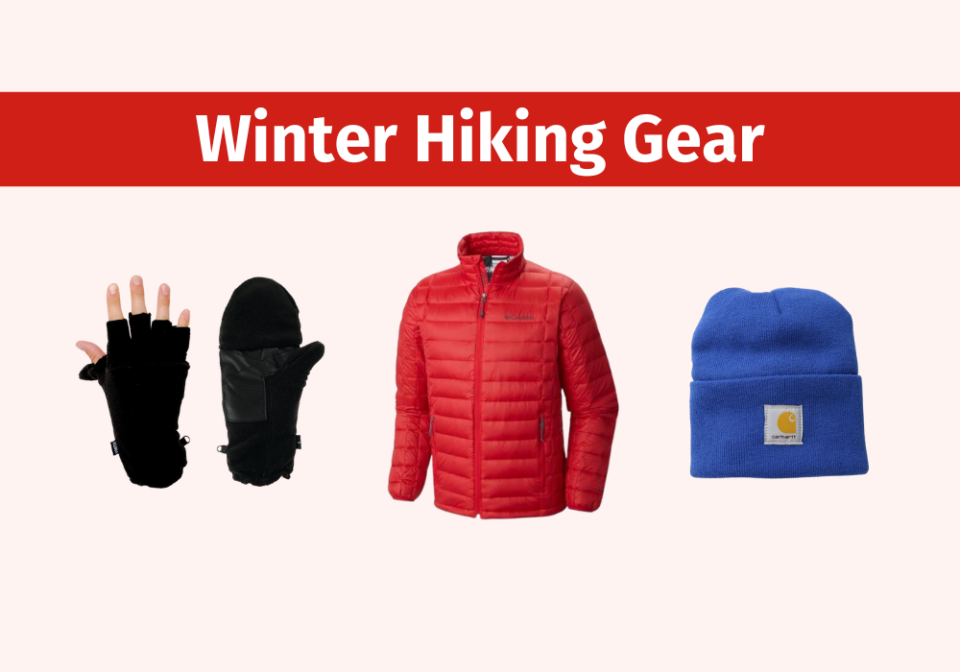
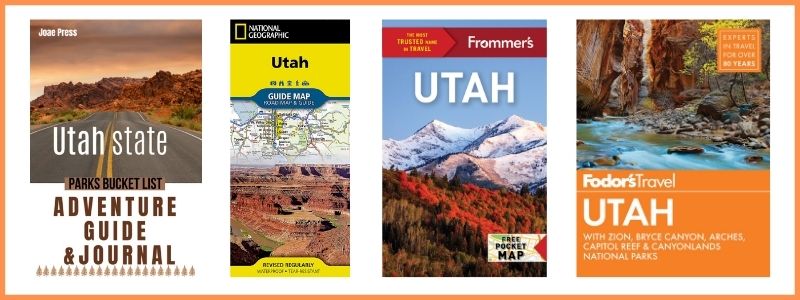
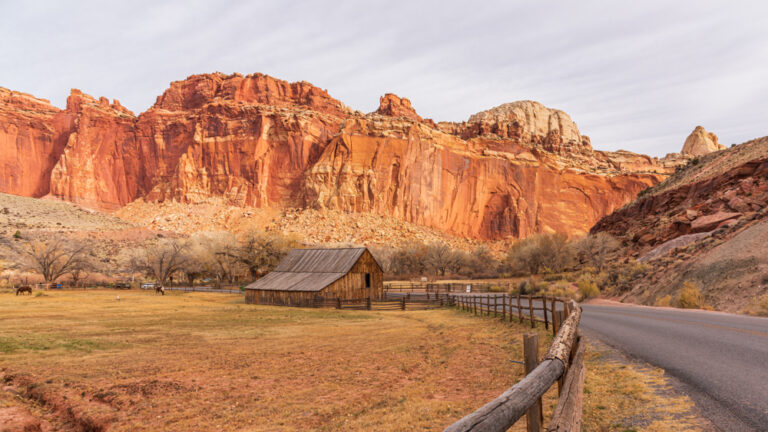
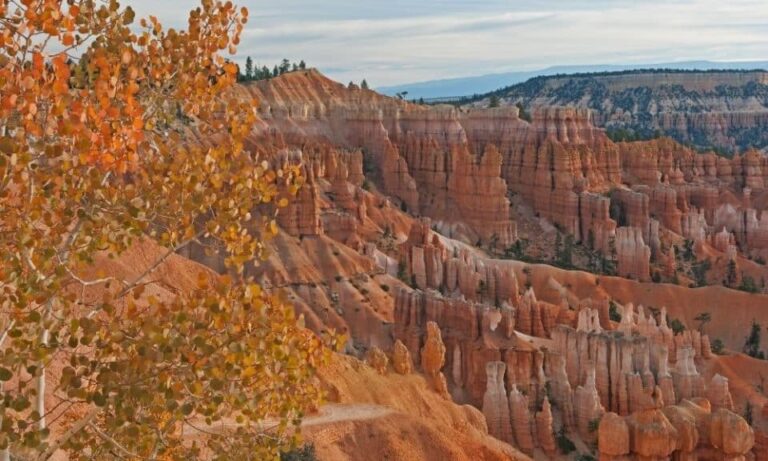
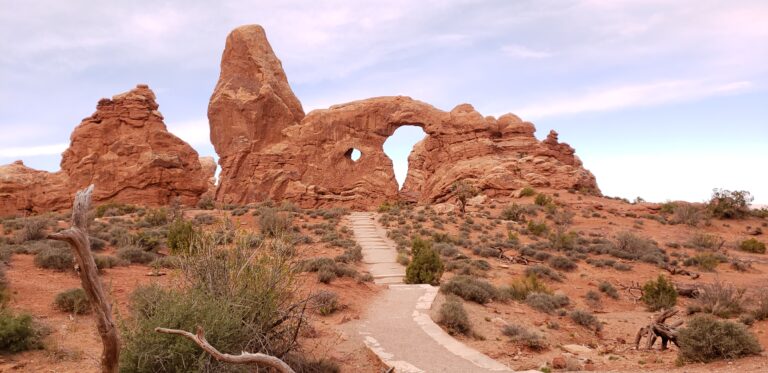
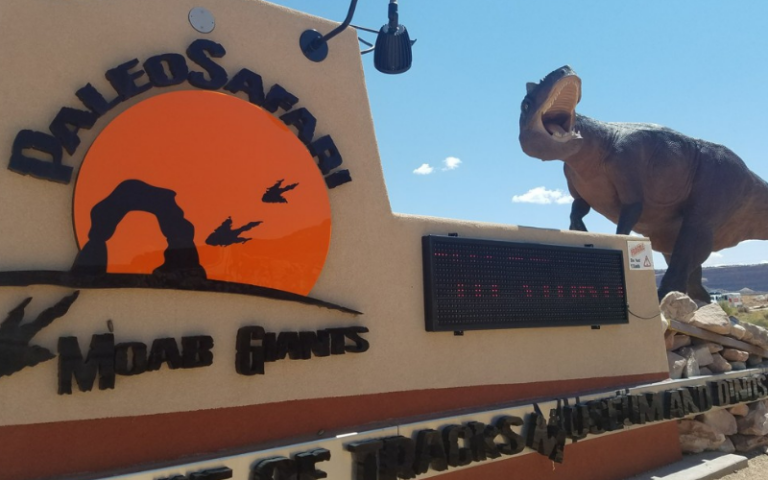
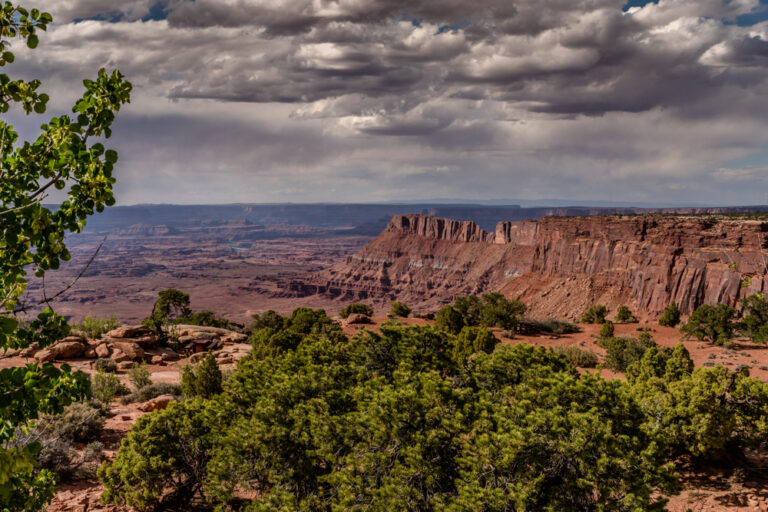
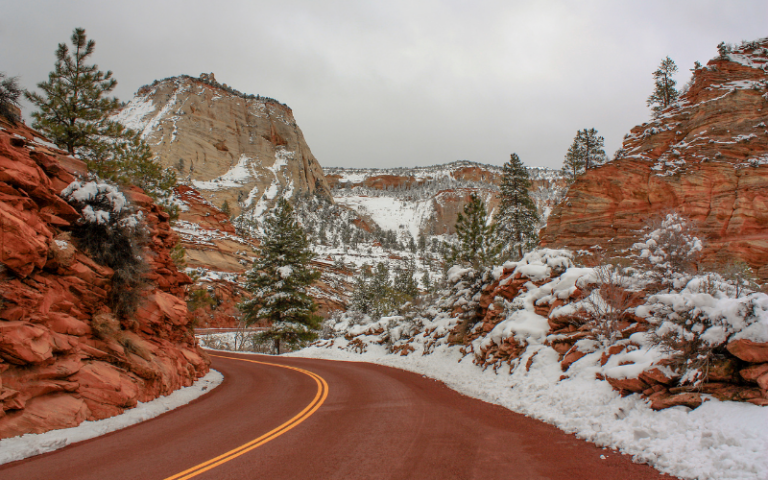
Lovely views, just so inspiring to be there.